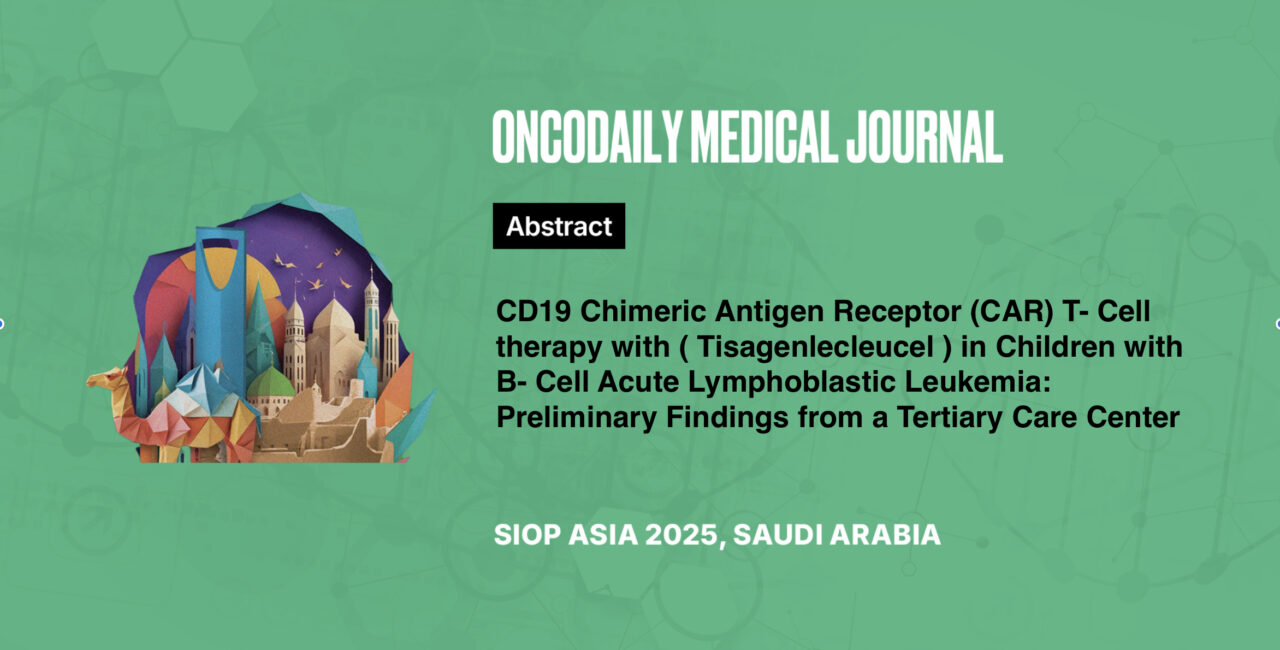CD19 Chimeric Antigen Receptor (CAR) T – Cell therapy with Tisagenlecleucel in Children with B-Cell Acute Lymphoblastic Leukemia: Preliminary Findings from a Tertiary Care Center
Abstract
Introduction: CAR T- cell therapy is an evolving therapy in children with relapsed/refractory B-Cell acute lymphoblastic leukemia (ALL).
Methodology: We describe the outcome of 13 children who was treated with Tisagenlecleucel in our center from January 2023 to December 2024. The indication of treatment, T-cell collection and manufacturing met institutional criteria and commercial quality specifications. All patient received similar supportive therapy, lymphodepletion regimen and monitored in the hospital for at least 14 days post-infusion. Cytokine release syndrome (CRS) and Immune effector cell associated neurotoxicity (ICANS) was graded and managed per ASTCT guidelines.
Results: Thirteen patients with B-ALL received 14 treatments with Tisagenlecleucel. The median age was 9.2 (1.41 to 14) years with 8:5 male to female ratio. Indications to proceed with CART-therapy included refractory disease in 30%, multiple relapses post HSCT in 46%. The remaining were Isolated CNS relapse or relapse in trisomy 21. 38% of the patients had MRD negative disease while 30% of the patients had > 5% blasts. Prior- immunotherapy was given in 30%. CRS developed in 61% of the patients. 4 patients were managed in PICU. 11 out of 13 patients remain alive with median follow-up of 10 (0.5 – 23) months. One patient underwent HSCT within 3 months and remains in remission. One patient died at Day +43 from severe multiorgan failure, IEC-HLH with intracranial bleeding and candidemia.
The second patient died one week post CART from severe multiorgan failure, CRS and severe typhilitis. Both patients had a high disease burden. Disease-relapse was observed in 2 patients , the first had early B-cell recovery after two CART infusions but salvaged with second HSCT. The other child received Inotuzumab followed by haploidentical-HSCT.
Conclusion: The outcome of CD19 CAR-T cell therapy in B-ALL is promising ; however, long-term follow-up with a larger cohort of patients is warranted.





